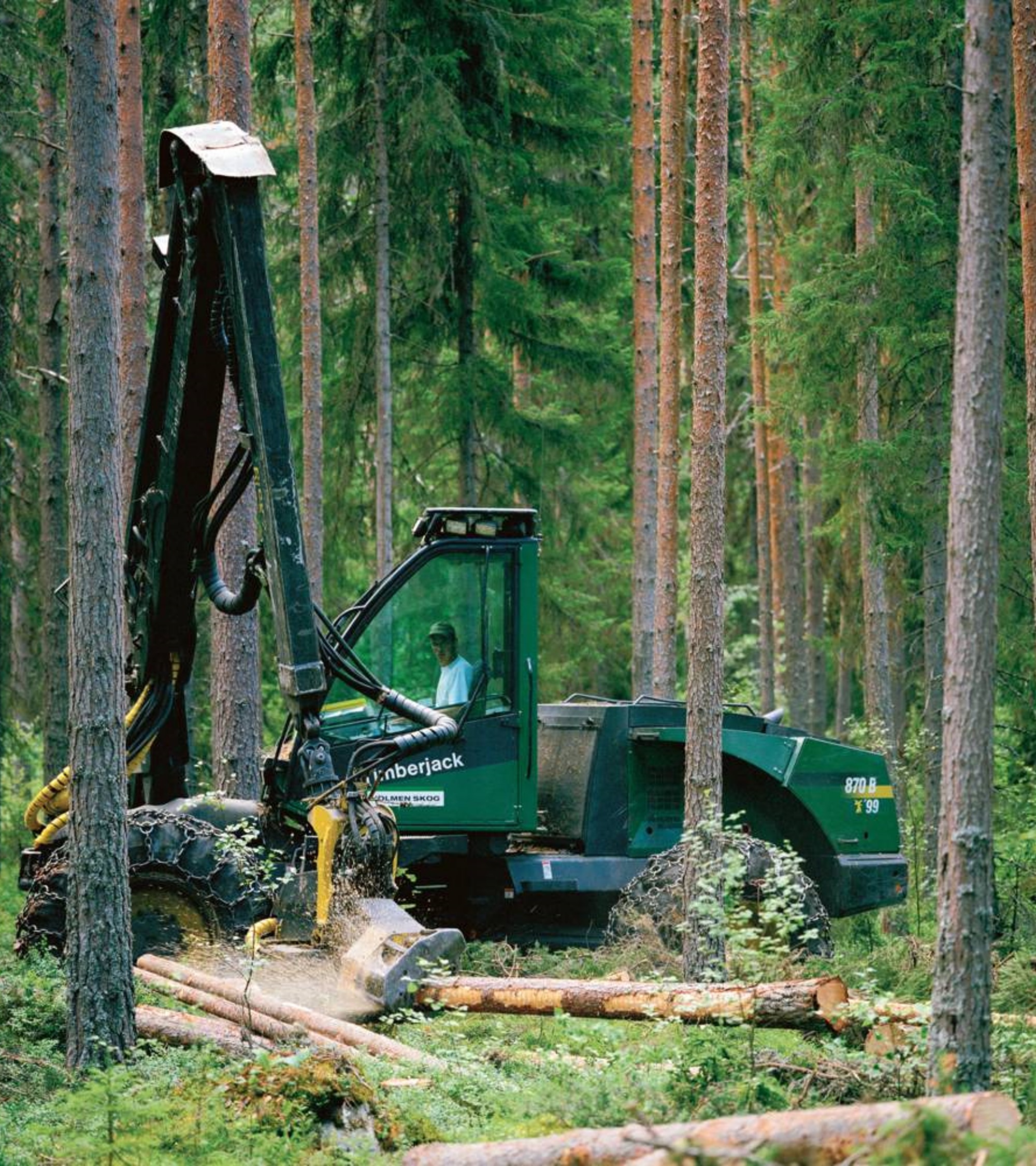
Forests: the heart of the bioeconomy
Forestry has a fundamental role in the green bioeconomy and the transition to a fossil-free society. Renewable forest raw materials provide alternatives to fossil-free products and opportunities for greater circularity with well-established material recycling processes. Wood fibre used in the paper industry is reused up to seven times in different paper products.
Renewable raw materials underpin the climate transition
Sweden’s forests and forest industries contribute to climate initiatives in three main ways:
- Substitution: renewable forest products replace fossil products and reduce emissions caused during production
- Carbon sinks: carbon is sequestered in forest products, (e.g. wooden buildings, furniture), growing forests, actively cultivated forest grows better and absorbs more carbon from the atmosphere
- Green energy: the forest sector is a net producer of renewable energy
The forestry industry’s major contribution to the transition to a circular bioeconomy requires increased access to biomass from sustainably managed forests. The supply of raw materials creates limits on how much fossil products can be replaced. Healthy, biodiverse forests with high growth rates provide the conditions for the production of traditional products, (sawn timber, pulp and paper), and new innovative wood-based materials and biofuels.
Roadmap to freedom from fossil fuels
Roadmap to freedom from fossil fuels
Swedish Forest Industries has developed a number of targets for 2030:
- The forestry industry’s share of GDP has doubled from three per cent in 2013 to six per cent in 2030.
- The market for wooden products has broadened and the value of the deliveries increased – at least 50 per cent of all new homes and an increased proportion of other buildings are built with wooden frames.
- Investment in research, innovation and demonstration facilities linked to forests and the forest industry have doubled to SEK 8 billion per year.
- Forestry industry’s deliveries of bioenergy have increased.
- Production of biofuels based on forest raw materials has increased; it is believed that they could increase from 1 TWh to 10 TWh.
- No fossil fuels are used in the work machines used in the forestry industry or in forestry.
Fossil-free transport requires large amounts of electricity
The forestry industry’s industrial processes are more than 95 per cent fossil-free. However, transports are largely dependent on fossil fuels. Renewable biofuels and the electrification of transports and machinery have considerable potential to replace diesel. The forest industry is one of Sweden’s largest purchasers of transports.